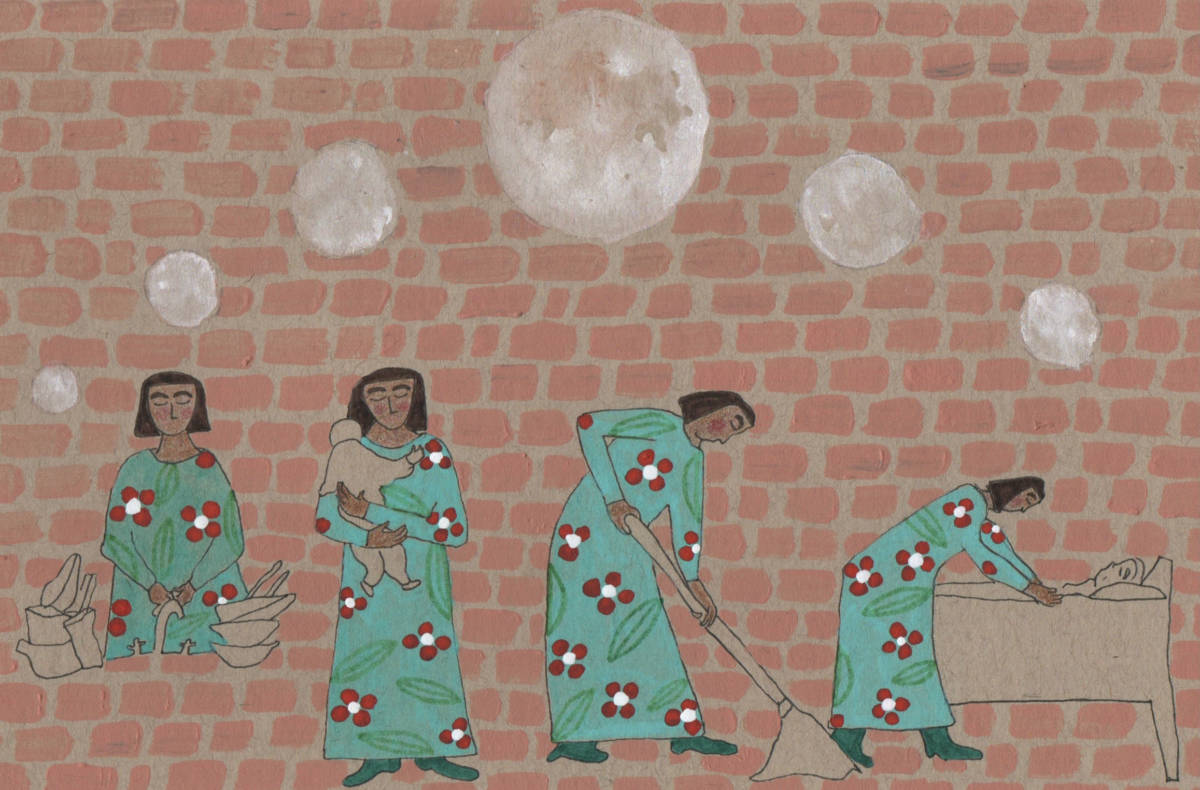Jhoey, a former migrant caregiver from the Philippines, arrived in Canada as a temporary foreign worker. Now an organizer with the Caregivers Action Centre’ and Migrant Workers Alliance for Change, she says her experiences as an in-home childcare provider have made her passionate about ensuring caregivers know their rights, and fighting for permanent status for all. This is her story in her own words.
Before I came to Canada in 2016, I worked in Hong Kong for nearly 16 years as a nanny. I wouldn’t have become a caregiver, but back in the Philippines there weren’t any good jobs, especially for mothers. It was about necessity. I stayed in Hong Kong not just to send money home, but because it was only two hours’ travel if I wanted to go home to my kids.
My friend who had come to Canada told me the employers were better here and that, with my work experience, my life would be better too. I came as a temporary foreign worker under the in-home childcare provider program. That’s a closed work permit, so you can only work for your employer. If you need to change your employer, or if your employer changes their mind about hiring you, you go through the whole process again. Processing takes too long, even before the pandemic. My first time, it took five months for the work permit and another one or two months for the Labour Market Impact Assessment, the form that my employer filled out to hire a foreign worker. The LMIA is supposed to take a maximum of eight weeks to process, but I’m hearing it’s now taking four or five months. You’re not allowed to work during processing, but many caregivers will work for their employer for cash while they wait. What else are you going to do? But that’s how you get exploited.
I met my first employer over Skype, and when they were interviewing me they seemed nice. But they didn’t pick me up from the airport. They didn’t have my room ready when I started. I had to sleep on a folding cot in the basement, and I didn’t have a quilt or a pillow. I felt insulted and belittled and I wondered, is this how low they think I am? Just because I came from a third world country?
I thought when I came to Canada that being a nanny was a profession — when they hire you from outside the country, you have to have at least one year of postsecondary education and previous experience working with children. But here, I was a nanny to two children and a teacher and a cleaner and a cook all in one. I worked 13 to 15 hours a day, and I only got paid for seven, which is a common problem for live-in caregivers. My employers were also taking the costs for the LMIA and my plane ticket out of my salary. Other live-in nannies would earn $1,700 a month; I was receiving $1,100. But I was sending money home for my two babies and to put my brothers through school. I didn’t want to lose the job.
As a care worker, you’re only allowed four years in Canada to finish the 24 months’ work experience you need to apply for permanent residency. If you haven’t applied by then, your experience expires and you have to start over. And the government caps the number of permanent residency applications it accepts every year from childcare and elderly care workers at 2,750 each. Last year, the government reached the maximum applications for childcare workers in four months; this year, it took 17 days. A lot of care workers stay with their employers even in an abusive situation. You get imprisoned by the work permit. You’re worried that you have this timeline to follow and you just wait while inside you’re breaking down.


